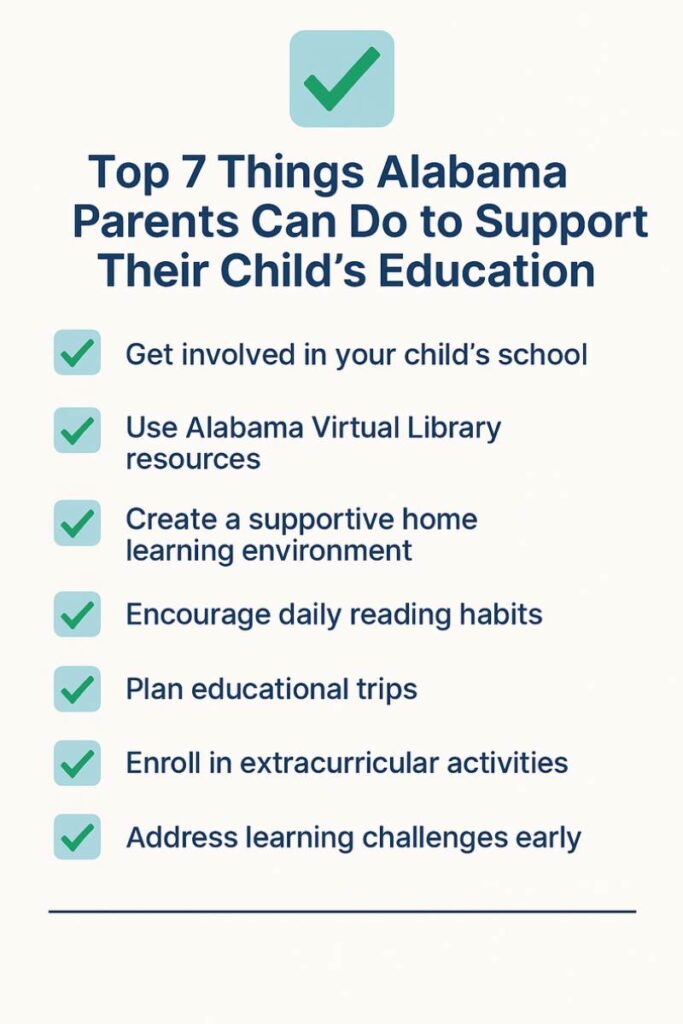Helping Your Child with Education in Alabama: A Parent’s Guide
Education is one of the most important investments a parent can make in their child’s future. For families in Alabama, supporting a child’s learning goes beyond ensuring attendance at school, it involves understanding the resources available, getting involved in the community, and providing enrichment opportunities at home. Parents who take an active role in their child’s education often see higher achievement, greater confidence, and stronger long-term outcomes.
This article explores how parents can help their children succeed in Alabama’s education system, what resources are available, and additional ways to further their learning beyond the classroom.
Understanding Alabama’s Education Landscape
Alabama’s public school system serves hundreds of thousands of students across diverse communities, from rural towns to large metropolitan areas. While resources vary depending on location, parents can generally access a variety of options including public schools, charter schools, private institutions, and homeschooling programs.
The state has made strides in improving academic performance, but challenges remain in areas such as literacy rates, STEM readiness, and addressing educational disparities. Parents who are proactive in supporting their children can help bridge gaps and open doors to more opportunities.
Getting Involved in Your Child’s School
One of the simplest yet most effective ways to help your child is by actively participating in their school life. This doesn’t just mean attending parent-teacher conferences, it includes joining the PTA, volunteering at events, or even just checking homework regularly.
Teachers report that children whose parents are engaged in their schooling tend to perform better academically and socially. They are more likely to complete assignments on time, maintain higher grades, and stay motivated to succeed.
Education Resources Available in Alabama
Parents in Alabama have access to a variety of education resources designed to support student achievement. These range from statewide initiatives to local community programs. For example, the Alabama State Department of Education (ALSDE) offers online resources for parents, including guides on curriculum standards, testing, and special education services.
Public libraries across the state are another valuable resource, offering free tutoring programs, homework help, and access to technology. Programs like Alabama Virtual Library provide students with free access to academic databases and research tools, making it easier to complete projects and essays.
Additionally, many local organizations, such as Boys & Girls Clubs and nonprofit tutoring centers, offer after-school programs focused on literacy, STEM, and life skills.

Supporting Learning at Home
Parents play a critical role in reinforcing what children learn at school. Creating a supportive home environment for studying can help students stay focused and motivated. Setting aside a quiet space, ensuring regular routines, and limiting distractions like television during study hours are all simple but powerful strategies.
Encouraging daily reading is especially important. Research consistently shows that children who read at home for just 20 minutes per day significantly outperform their peers who don’t. Parents can also discuss books, current events, or class topics at the dinner table to spark critical thinking and curiosity.
Practical Ways to Enrich Education
Beyond formal schooling, parents can take steps to broaden their child’s learning experience:
- Educational Trips – Museums, science centers, and historical landmarks in Alabama provide hands-on learning opportunities.
- Extracurricular Activities – Sports, music, debate clubs, classroom board games, and art classes build confidence, teamwork, and creativity.
- Community Involvement – Volunteering together as a family teaches responsibility and social awareness.
- Technology and Apps – Using educational apps can reinforce math, reading, and science skills in engaging ways.
- Mentorship – Connecting with older students or professionals can inspire children and provide guidance about future careers.
These activities not only support academic success but also help children develop as well-rounded individuals.
The Role of Extracurricular Activities
Extracurriculars are not just “extras”, they’re an essential part of education. Alabama schools and community organizations offer a wide range of programs that give children opportunities to explore their passions. Sports teams encourage physical health and teamwork, while music and art programs promote creativity and discipline. Clubs like robotics or debate can prepare students for future careers in science, technology, law, or public service.
Encouraging children to participate in these activities builds skills that traditional classrooms may not emphasize, such as leadership, time management, and resilience.
Addressing Learning Challenges
Not every child learns the same way, and some may struggle in traditional classroom settings. Alabama schools provide access to special education services for students with learning disabilities, speech delays, or other challenges. Parents can request evaluations and work with teachers to develop individualized education programs (IEPs).
Tutoring, whether through school, nonprofits, or private providers, can also make a big difference for students who need extra help. Recognizing challenges early and seeking support ensures children don’t fall behind and can continue building confidence in their abilities.
Preparing for Higher Education
Helping your child succeed doesn’t end with high school. Planning for higher education, whether college, trade school, or technical certification, should begin early. Alabama offers a variety of scholarships and financial aid opportunities, such as the Alabama Student Assistance Program and institution-specific awards.
Parents can guide their children in exploring career interests, visiting campuses, and building strong resumes through volunteer work and extracurricular involvement. Early preparation reduces stress and increases the likelihood of securing financial support.
Final Thoughts
Helping your child with their education in Alabama requires more than sending them to school each day—it involves active engagement, knowledge of available resources, and a willingness to supplement learning with home support and community opportunities.
By using education resources like the Alabama Virtual Library, fostering daily learning habits at home, and encouraging extracurricular involvement, parents can ensure their children grow academically, socially, and emotionally. The goal is not only to help them succeed in school but also to prepare them for lifelong success in higher education, careers, and personal growth.

